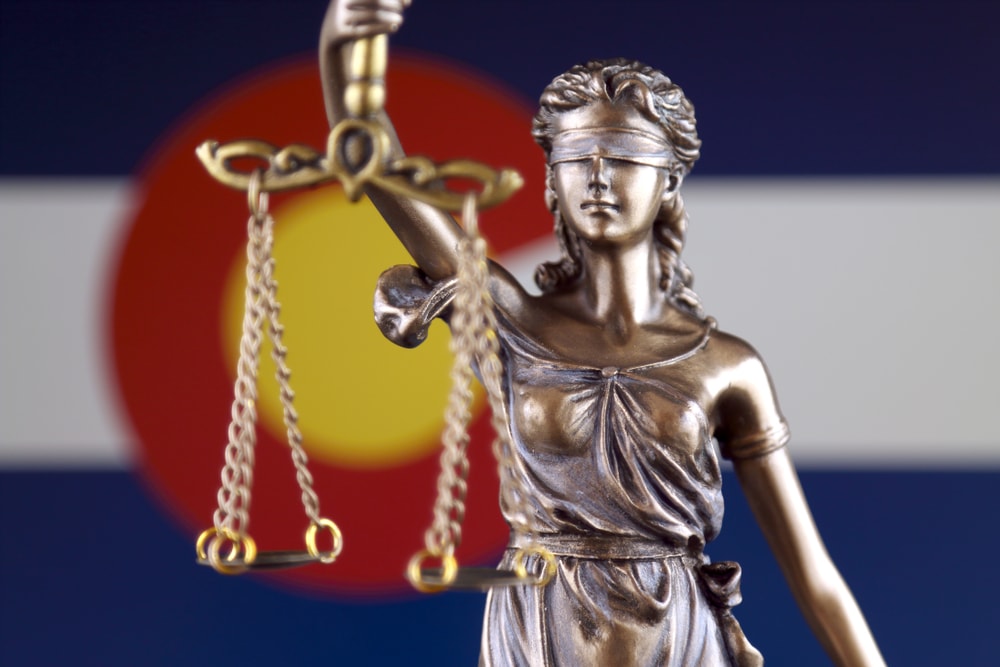One of the first states to legalize marijuana, Colorado is known for its progressive drug laws. In fact, the state’s capital recently decriminalized mushrooms. But the state still has very strict laws on drinking and driving as well as sales and possession of other types of drugs.
Keep reading to learn about drug and alcohol laws in Colorado, and get a sense of the potential penalties for breaking these rules.
DUI Laws in Colorado
If you get caught driving with a blood alcohol content (BAC) over 0.08, you can be charged with a DUI. Here are the penalties for DUI convictions in Colorado:
- 1st offence: lose license for 9 months, 12 points on driving record, 5 days to 1 year in jail, $600 to $1000 fine, and 48 to 96 hours community service.
- 2nd offense: lose license for 12 months, 12 points on driving record, 10 days to 1 year in jail, $600 to $1000 fine, and 48 to 120 hours community service.
- 3rd offense: lose license for 2 years, 12 points on license, 60 days to 1 year in jail, $600 to $1500 fine, and 48 to 120 hours community service.
- 4th offense: felony charges, 2 to 6 years in prison, 3 years parole, and 48 to 120 hours community service.
You may also face court costs up to $500. If you injure someone or cause their death, the penalties are much more severe. Additionally, if you have 3 offenses in 7 years, you face a mandatory 5-year license revocation.
Zero Tolerance Laws for Colorado
Colorado has zero tolerance laws for drivers under the age of 21. If drivers in this age group have a BAC between 0.02 and 0.05, they can face 10 to 90 days in jail, fines up to $300, and up to 24 hours of community service.
Similar to zero tolerance laws, this state also has rules related to Driving While Ability Impaired (DWAI). DWAI laws come into play if you have drugs in your system or a BAC over 0.05 and under 0.08.
For a 1st DWAI, you receive 8 points on your driving record, 2 to 180 days in jail, $200 to $500 fine, and 24 to 48 hours community service. For 2nd, 3rd, and 4th DWAI convictions, the penalties are the same as for DUIs, but you receive fewer points on your driving record.
Is Marijuana Legal in Colorado?
Marijuana is legal in Colorado. In this state, you can walk into a dispensary and choose from all kinds of different flower strains, edible products, hash oil, cannabis extracts, and other products. But there are still some laws about marijuana on the books in Colorado.
Here are the basics:
- You must be 21 to buy recreational marijuana in Colorado.
- If you are 18, you can buy medical marijuana (mmj) if you have the right prescription.
- Parents can obtain medical prescriptions for minors.
- You can only buy marijuana from licensed vendors.
- You cannot sell marijuana unless you are a licensed vendor.
- An individual can only have up to 1 ounce of marijuana. The limits are different for medical users.
- Smoking or consuming edibles is not allowed in public.
- You cannot use mmj on public land.
- Employers can test workers for marijuana.
- Marijuana stores can only be open between 8 a.m. and midnight.
- Cities do not have to allow recreational marijuana. For example Colorado Springs, the second largest city in the state, does not allow recreational sales.
- You can be charged with a DWAI if you have more than 5 nanograms of delta-9 THC in your blood while driving.
Drug and Alcohol Related Crimes
Like all other states, Colorado has laws against possessing illicit drugs such as cocaine, ecstasy, and heroin, and the state also bans possession of drugs with intent to distribute and drug trafficking. The charges and penalties vary based on the type of drug and the amount.
Penalties for Drug or Alcohol Abuse in Colorado
In Colorado, drug-related misdemeanors can lead to 18 months in jail and up to a $10,000 fine. For felony convictions, the penalties can be up to 6 years in prison and up to $100,000 in fines.
In March 2020, a new set of laws go into effect in Colorado. Designed to shift the focus from criminalizing drug use to seeing the issue as a health concern, the laws reduce the penalties for personal possession.
In particular, you no longer face a felony for possession of drugs for personal use. Jail sentences have also been reduced, and the state can no longer charge people for drug possession if they have paraphernalia (pipes, syringes, etc) with drug residue.
If you live in Colorado and you need help, reach out to a treatment center in your local area. Asking for help is the first step to reclaiming your life.
Sources:
- Becoming a patient in Colorado. (n.d.).
- Colorado drug possession laws. (n.d.).
- Jason Auslander. (n.d.). New Colorado law to ‘de-felonize? drug possession goes into effect March 2020.
- Laws about marijuana use. (2016, August 15).
- Marijuana licensing. (2020, January 29).
- Nicole Chavez and Ryan Prior, CNN. (2019, May 9). Denver becomes the first city to decriminalize hallucinogenic mushrooms.
- Office of Legislative Legal Services. (n.d.). Colorado drunk driving laws.
